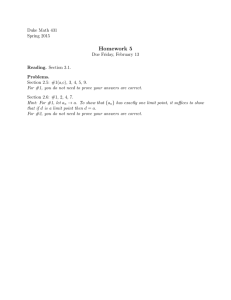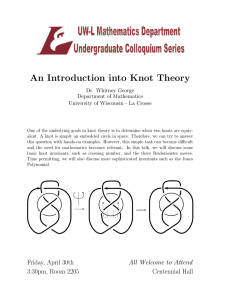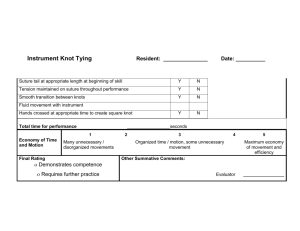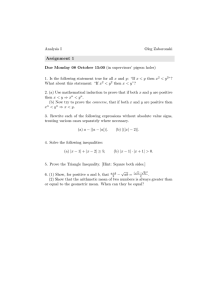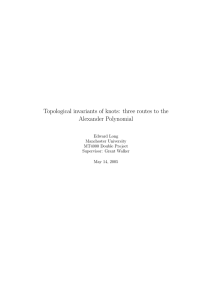Math 336 HW #8
advertisement
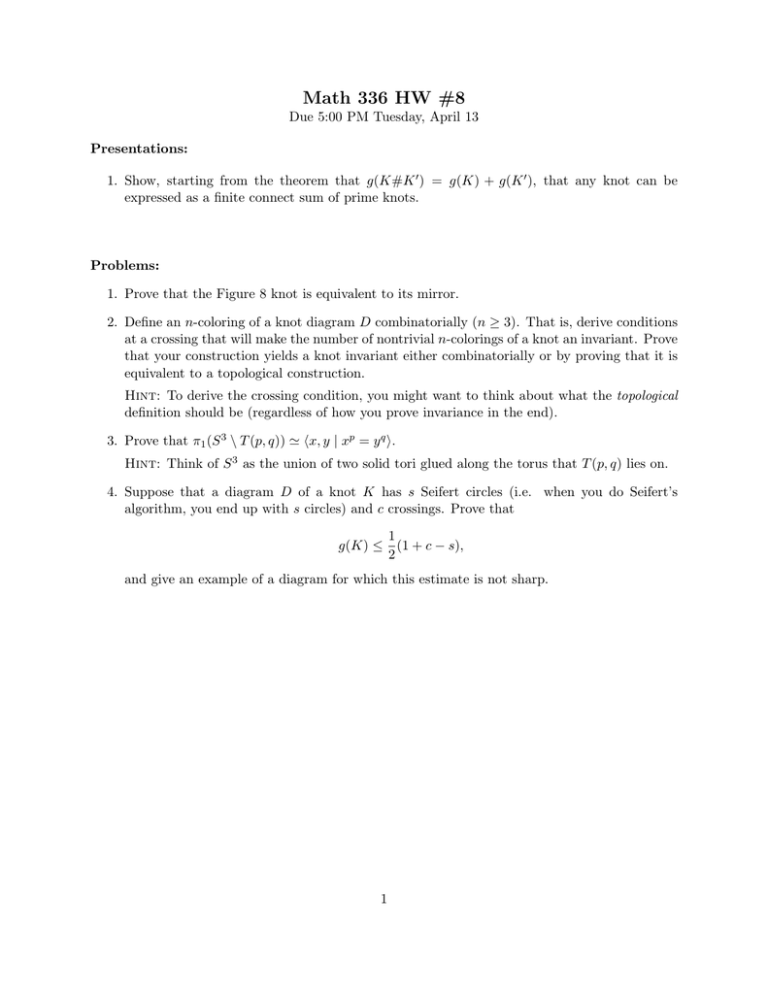
Math 336 HW #8 Due 5:00 PM Tuesday, April 13 Presentations: 1. Show, starting from the theorem that g(K#K 0 ) = g(K) + g(K 0 ), that any knot can be expressed as a finite connect sum of prime knots. Problems: 1. Prove that the Figure 8 knot is equivalent to its mirror. 2. Define an n-coloring of a knot diagram D combinatorially (n ≥ 3). That is, derive conditions at a crossing that will make the number of nontrivial n-colorings of a knot an invariant. Prove that your construction yields a knot invariant either combinatorially or by proving that it is equivalent to a topological construction. Hint: To derive the crossing condition, you might want to think about what the topological definition should be (regardless of how you prove invariance in the end). 3. Prove that π1 (S 3 \ T (p, q)) ' hx, y | xp = y q i. Hint: Think of S 3 as the union of two solid tori glued along the torus that T (p, q) lies on. 4. Suppose that a diagram D of a knot K has s Seifert circles (i.e. when you do Seifert’s algorithm, you end up with s circles) and c crossings. Prove that 1 g(K) ≤ (1 + c − s), 2 and give an example of a diagram for which this estimate is not sharp. 1

